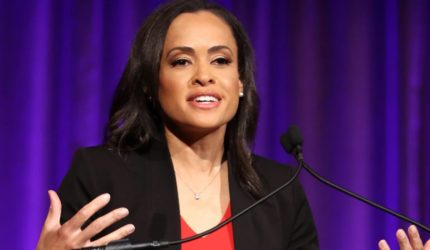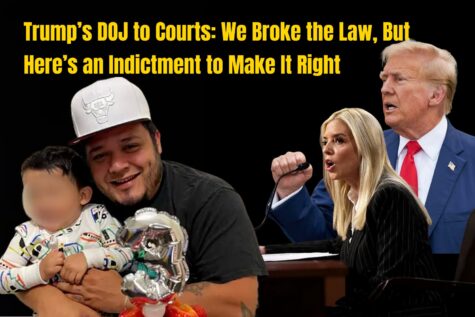ABC News moderators Linsey Davis and David Muir came under fire from Republicans following their handling of fact-checking during a debate, particularly regarding Vice President Kamala Harris’ claims about Donald Trump’s stance on in vitro fertilization (IVF). In a revealing interview, Linsey Davis shed light on the rationale behind their approach to live fact-checking and the challenges that came with moderating a politically charged debate.
Linsey Davis acknowledged that it was a “conscious decision” to address fact-checking after observing the performances of Trump and Biden in a CNN debate earlier in the year. She revealed that concerns arose when statements were left unchallenged, sparking the need for moderators to step in. “People were concerned that statements were allowed to just hang and not [be] disputed by the candidate Biden, at the time, or the moderators,” she stated. This admission came amid Republican backlash, with critics accusing the moderators of selectively fact-checking Trump while giving Harris a pass.
Challenges of Moderating High-Stakes Political Debates
During the interview, Linsey Davis emphasized the difficulty of fact-checking candidates live, especially in debates where numerous statements fly at once. Despite anticipating Trump’s comments on contentious issues like abortion and IVF, Linsey Davis admitted that the moderators were not always able to challenge false claims. She stated, “We tried, but we failed to get the candidates on the record every time they claim they told a lie.”
Linsey Davis’ confession reflected the inherent difficulty in keeping up with the fast pace of debate interactions, where time constraints often limit the opportunity to engage in comprehensive fact-checking. Moderators like Linsey Davis and Muir face the dual challenge of maintaining neutrality while attempting to hold candidates accountable for their statements.
Social Media Criticism Of Linsey Davis and Personal Challenges
Another point of discussion was the impact of social media, where Linsey Davis highlighted how tough it has been for her as a black woman covering Kamala Harris, the first black woman to run as a major presidential candidate. “There is a stereotype that I am acutely aware of that I can’t be unbiased covering this moment,” Linsey Davis remarked, noting that anonymous social media users regularly remind her of the perceived bias.
The pressure of navigating public opinion while trying to remain impartial weighs heavily on moderators.Linsey Davis’ reflection on the personal aspect of this experience underscores the unique position she is in and the difficult balancing act required to cover such a historic moment without letting personal experiences influence her professional responsibilities.
Trump’s Stance on IVF and Abortion: A Key Election Issue
Trump’s stance on abortion and IVF has been a hot topic throughout the campaign, further complicating the debate scene. During the ABC debate, Harris incorrectly claimed that Trump opposed IVF, a statement that went unchecked by the moderators. This led to outrage from Trump supporters and political commentators alike. Former White House Press Secretary Ari Fleischer took to social media, criticizing ABC’s fact-checking approach, calling it biased for failing to correct Harris’ statement.
In response, Trump’s campaign swiftly clarified the former president’s position, emphasizing his support for IVF and noting that Trump had previously spoken out in favor of the procedure. Trump himself has frustrated social conservatives by taking a more progressive stance on IVF and softening his language on abortion, distancing himself from more restrictive laws such as Florida’s six-week abortion ban. His evolving stance on abortion rights, along with the debate over IVF, continues to be a key talking point as the presidential campaign progresses.














